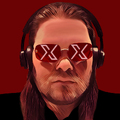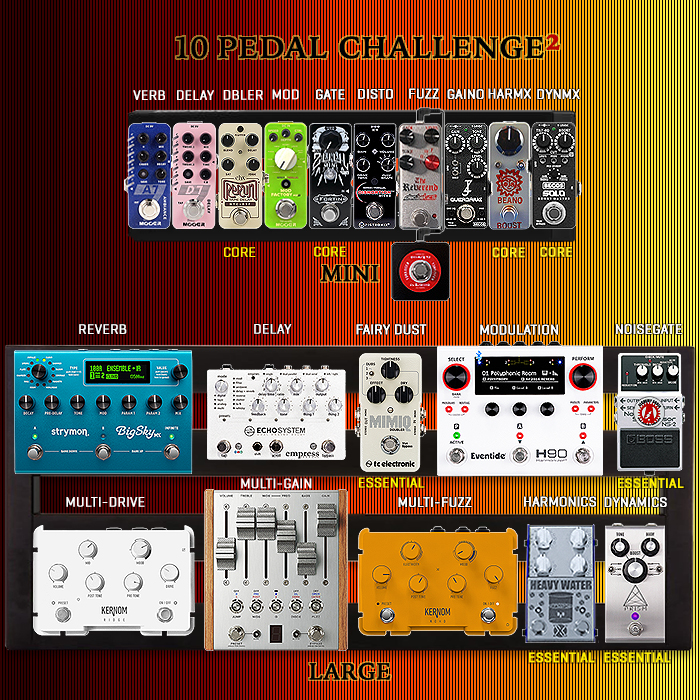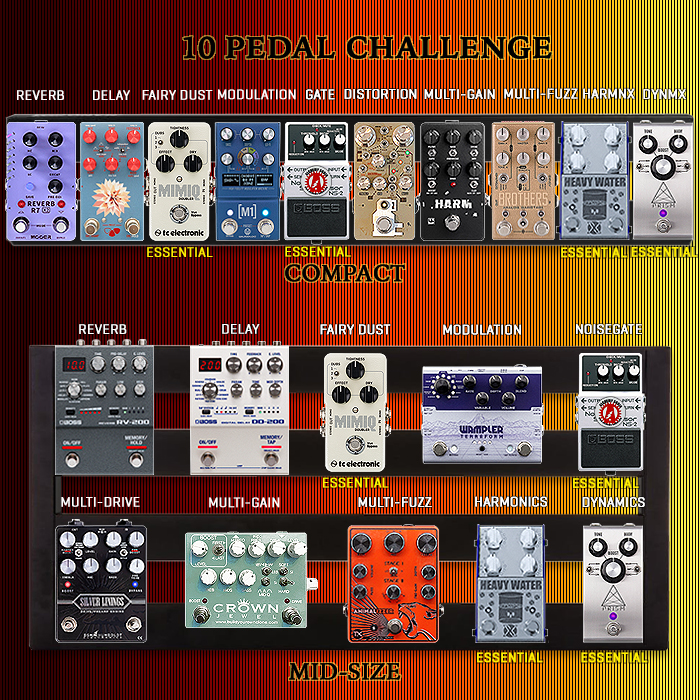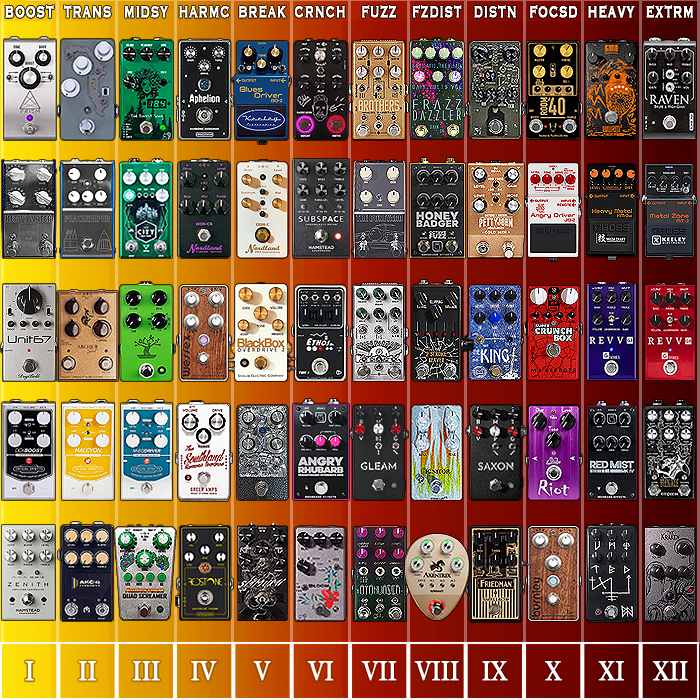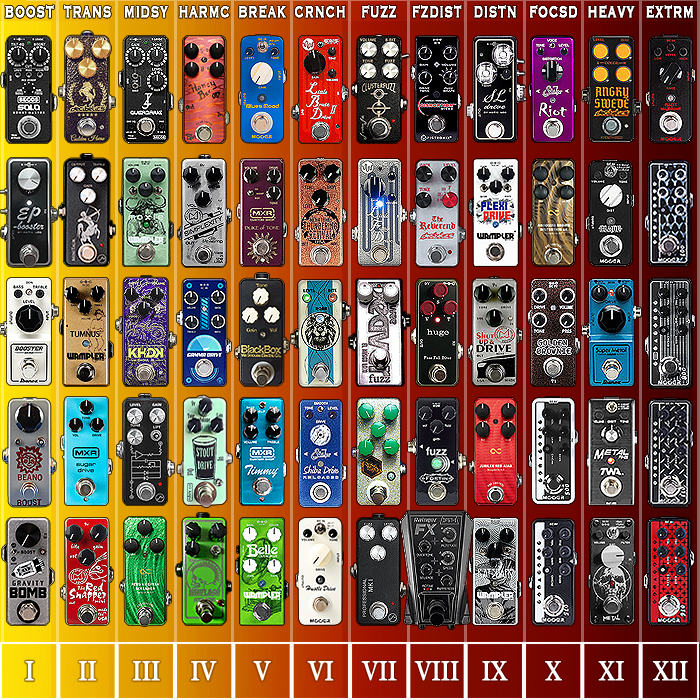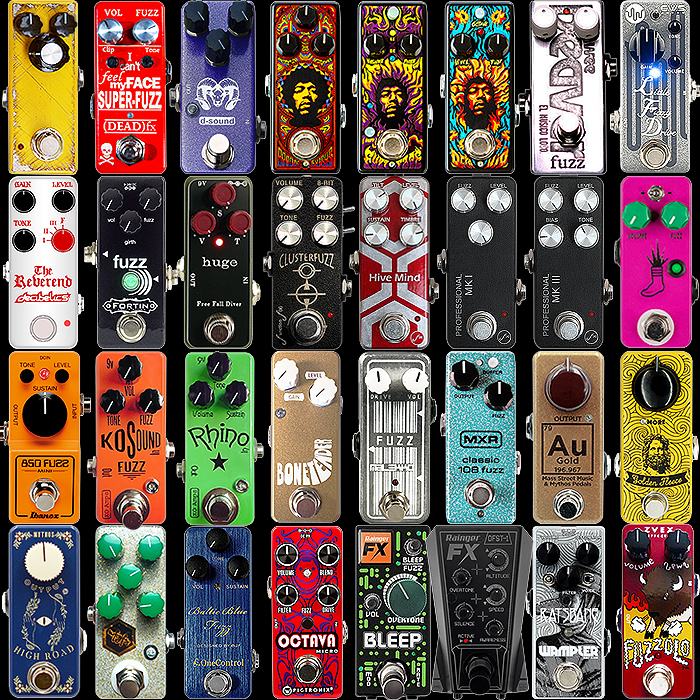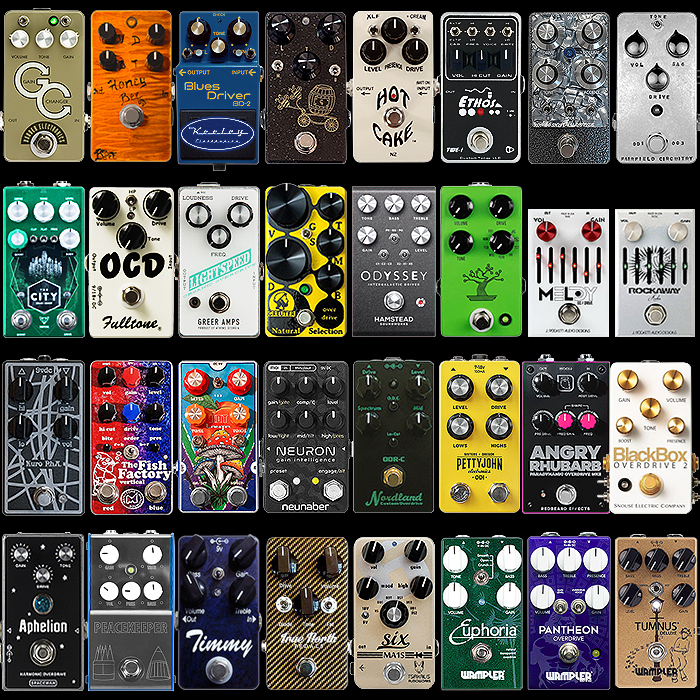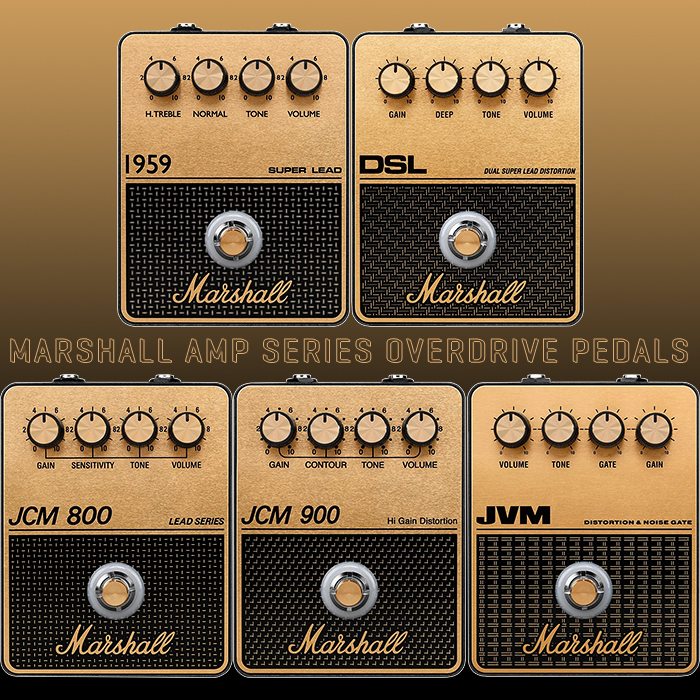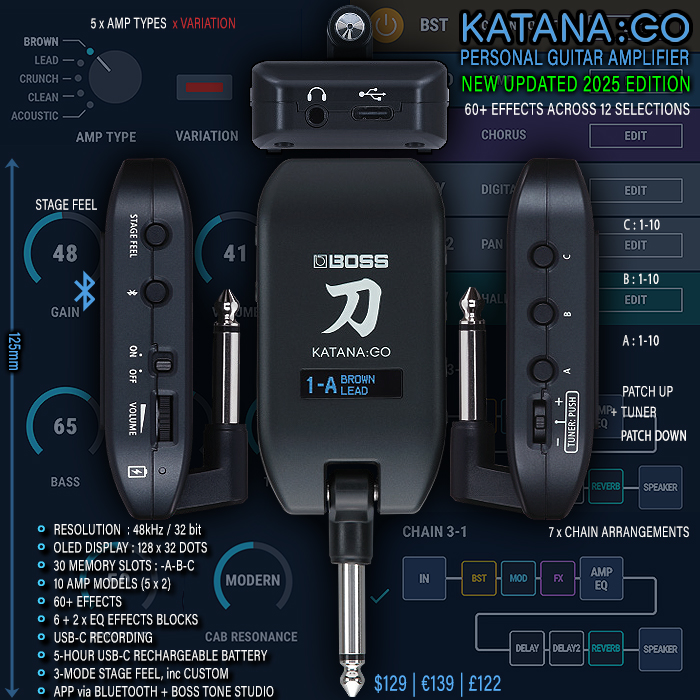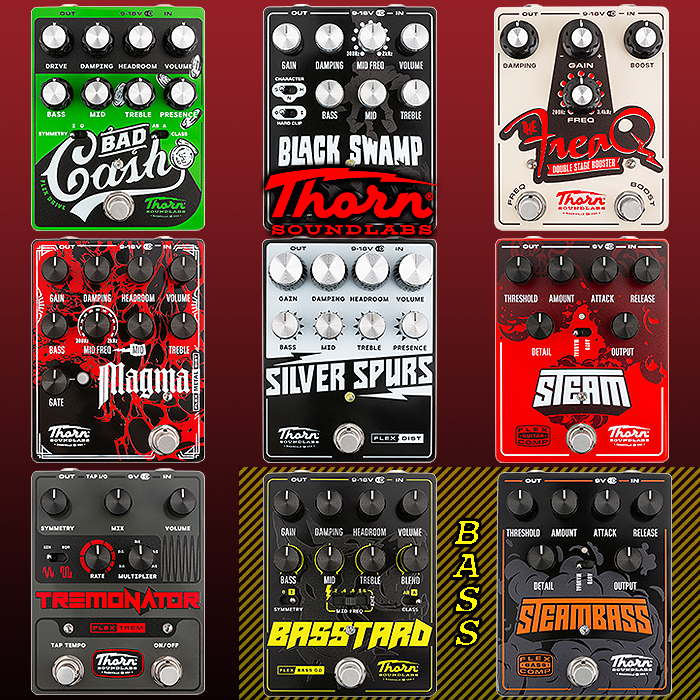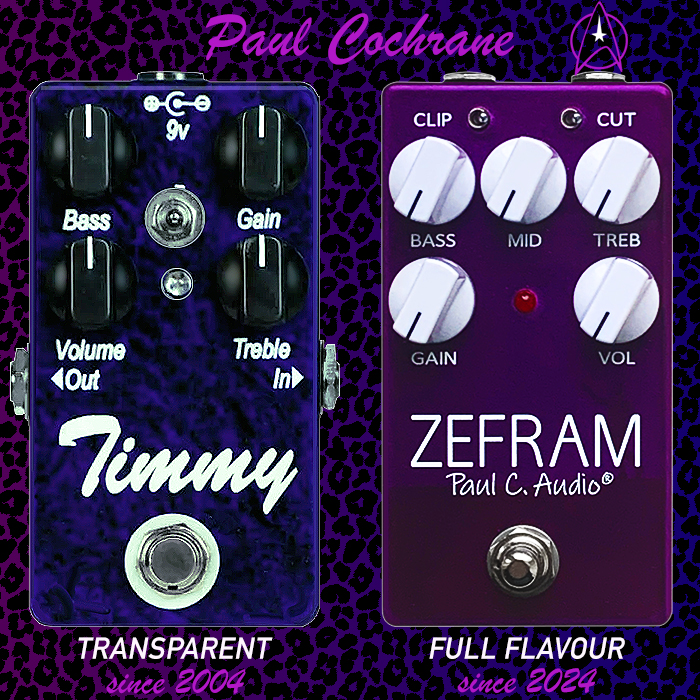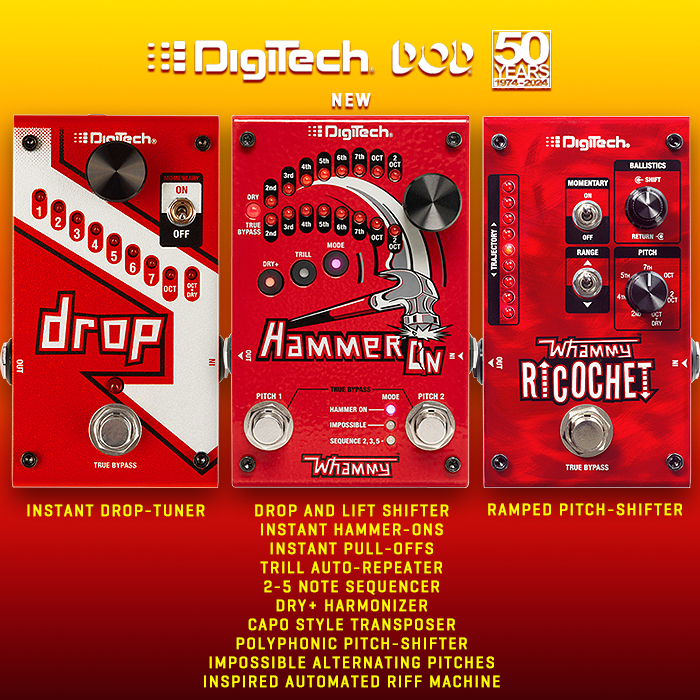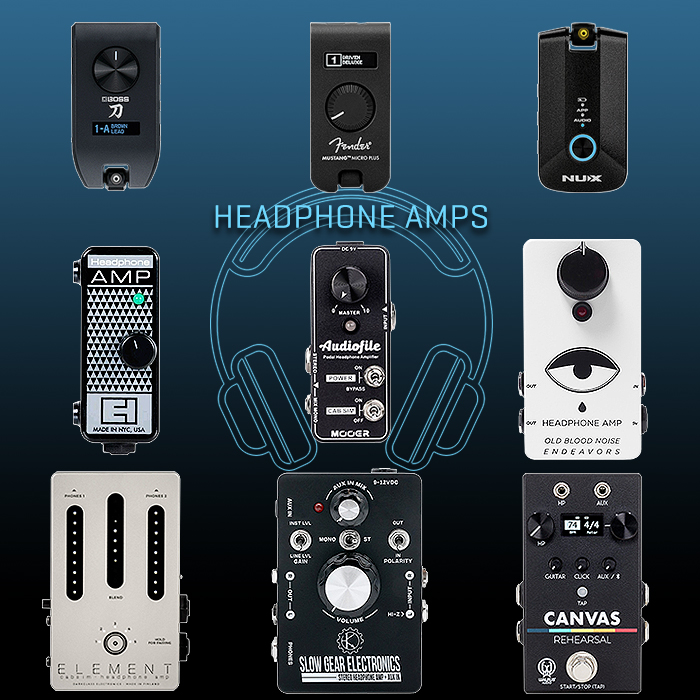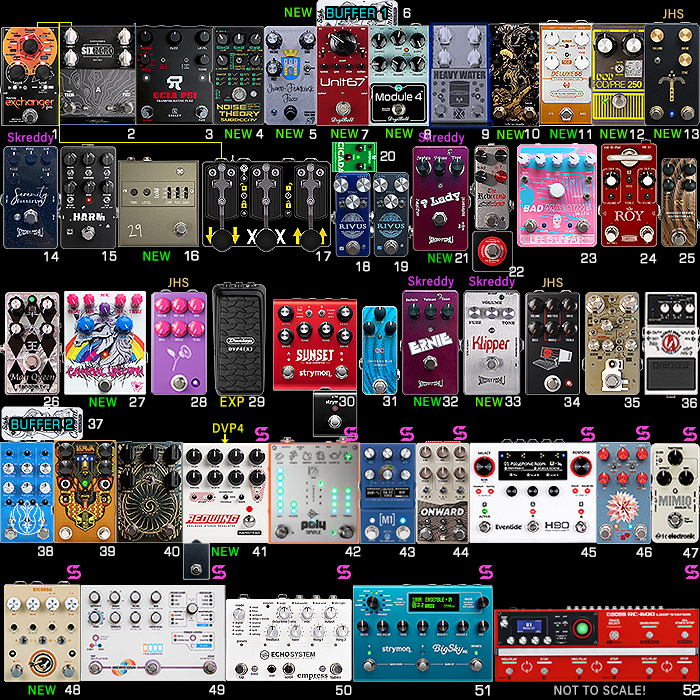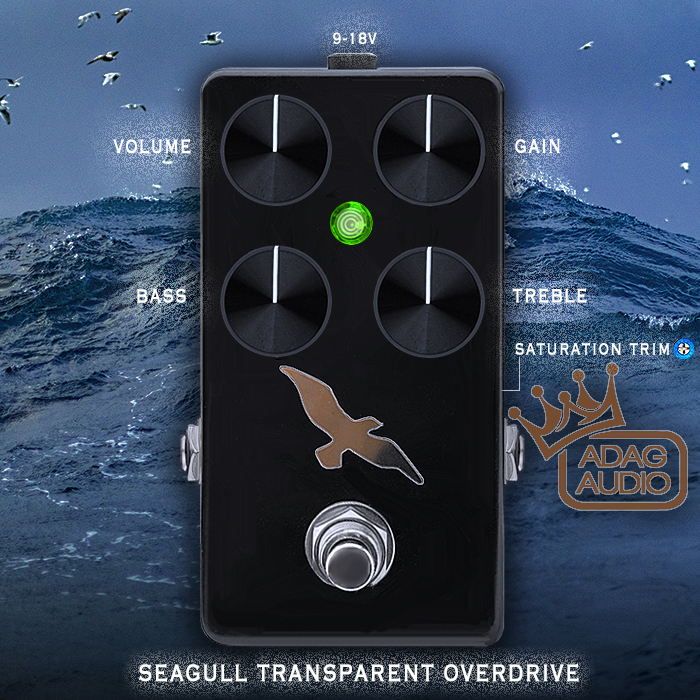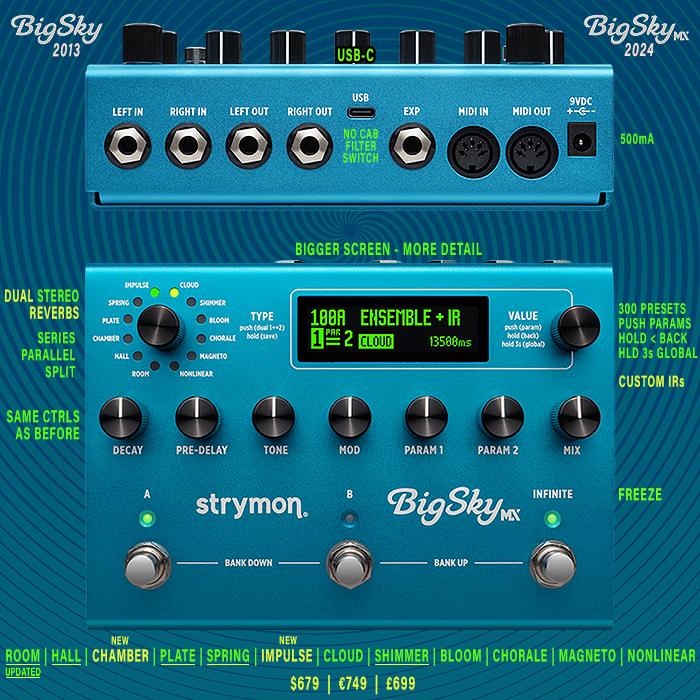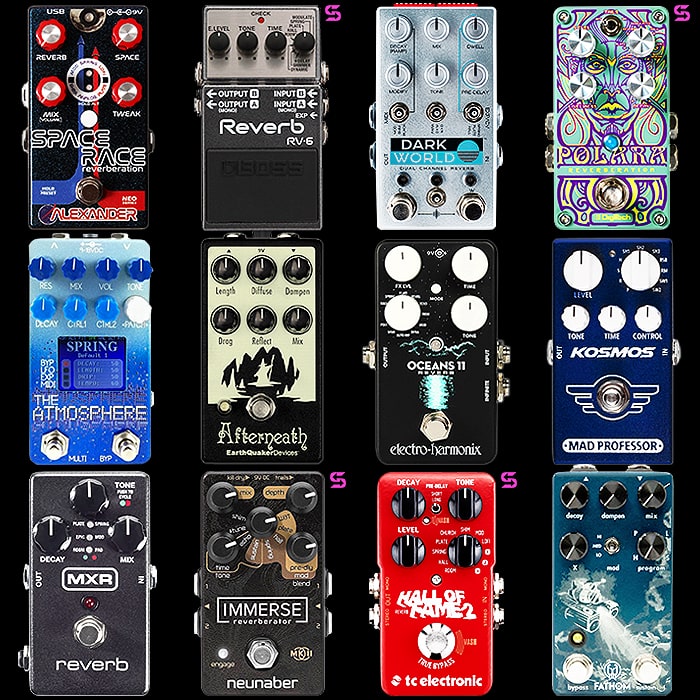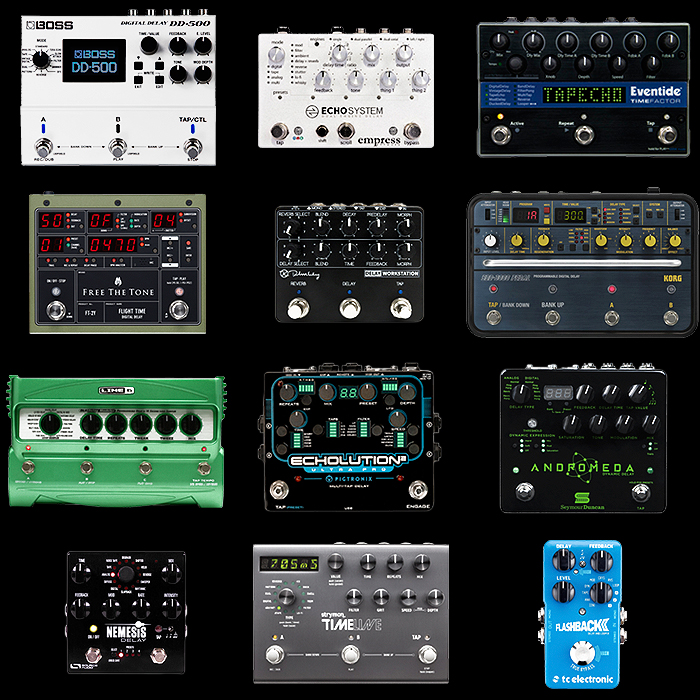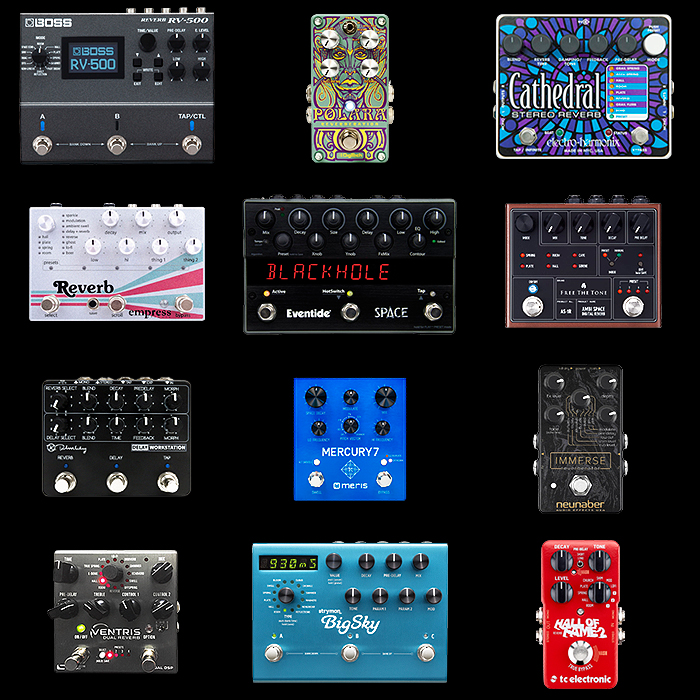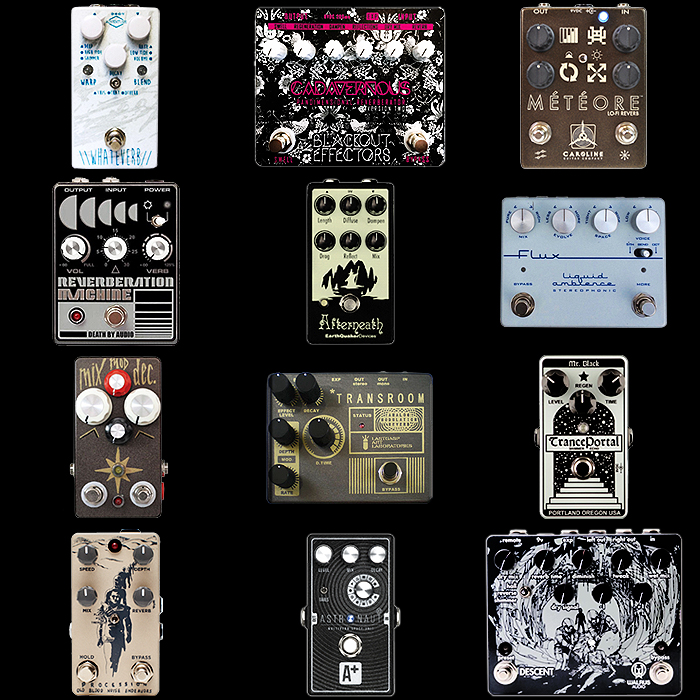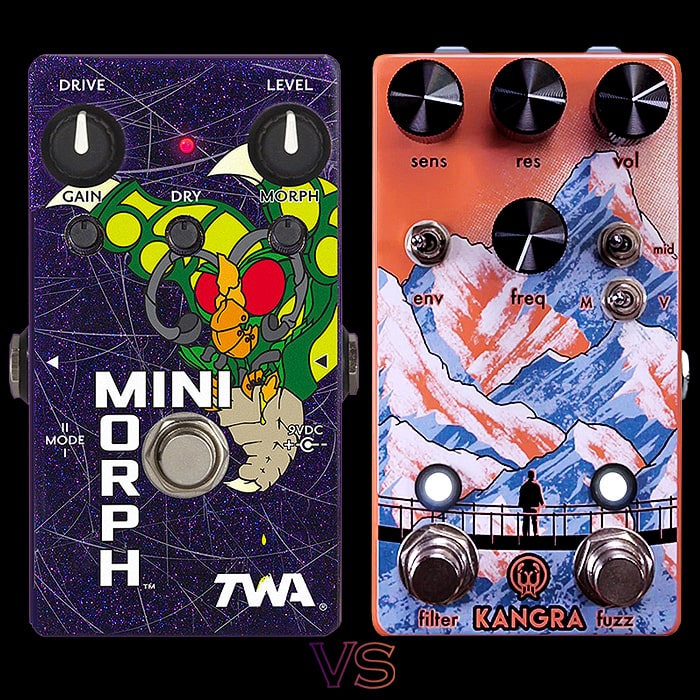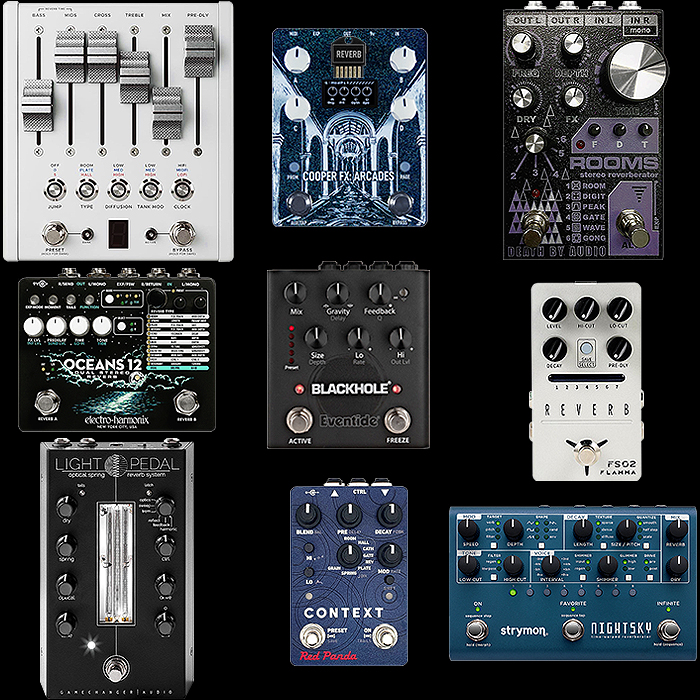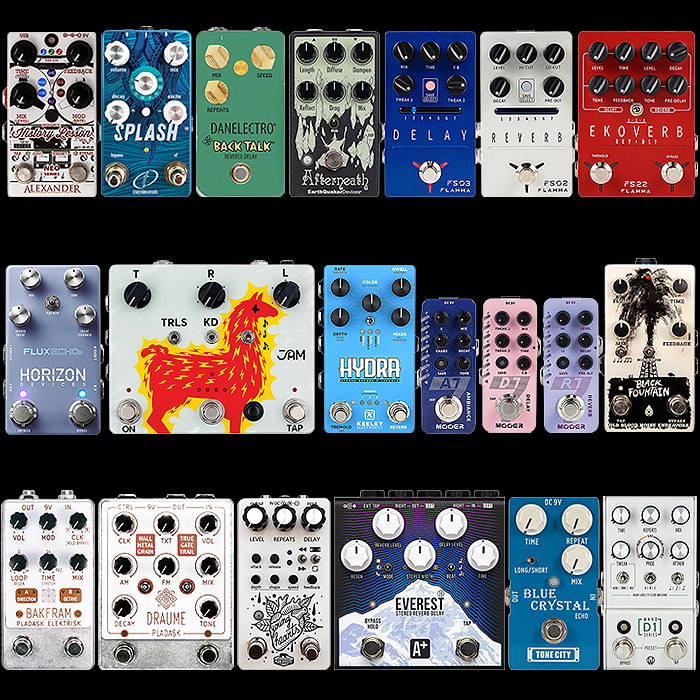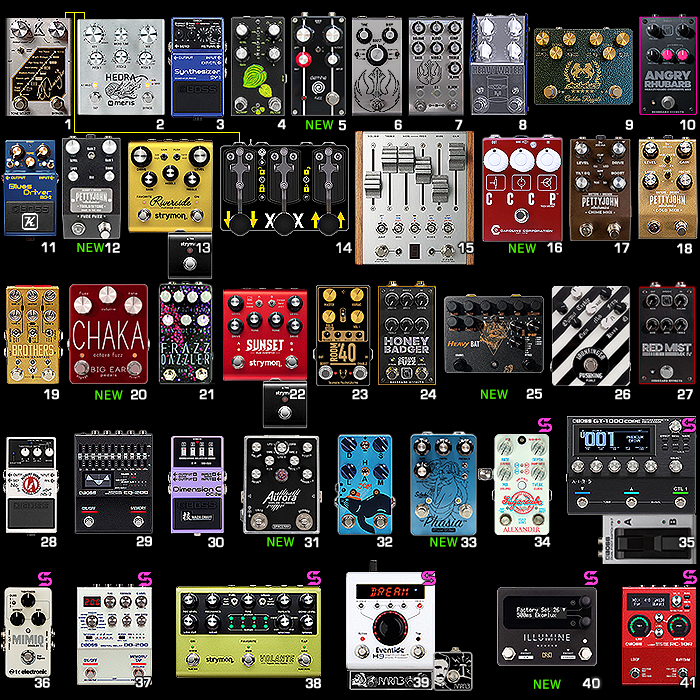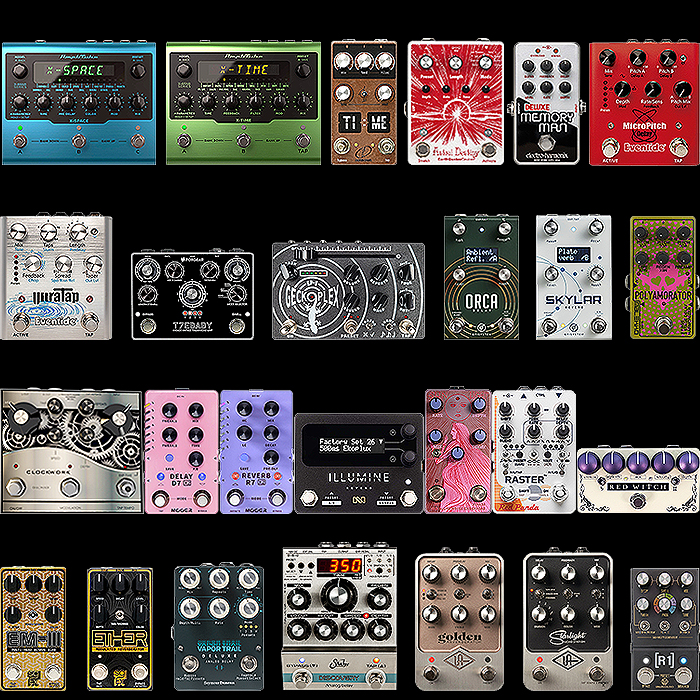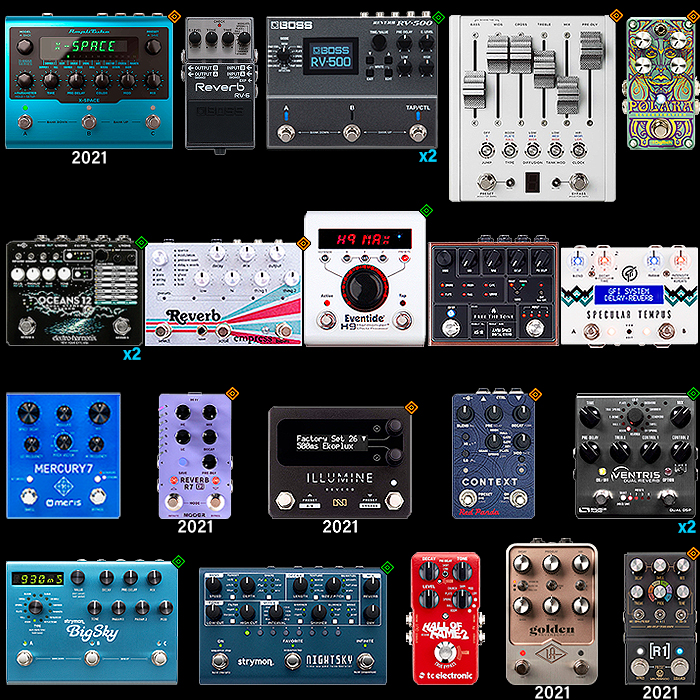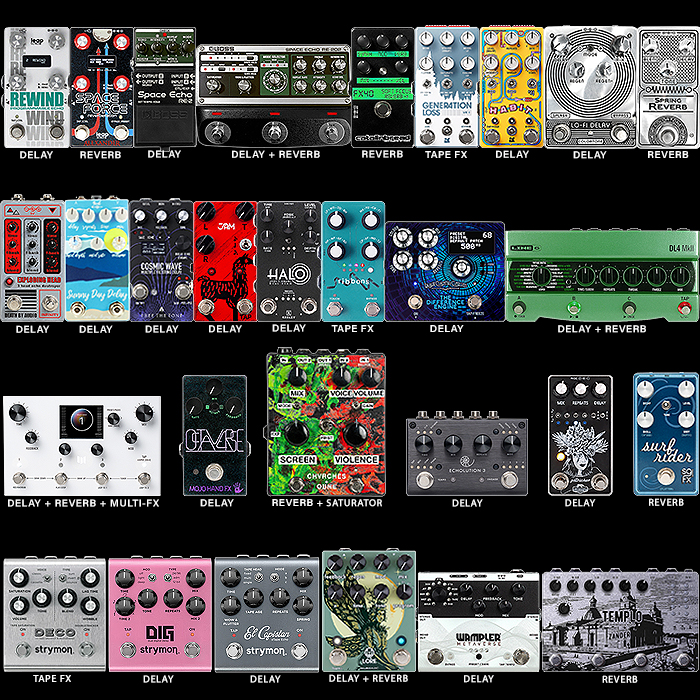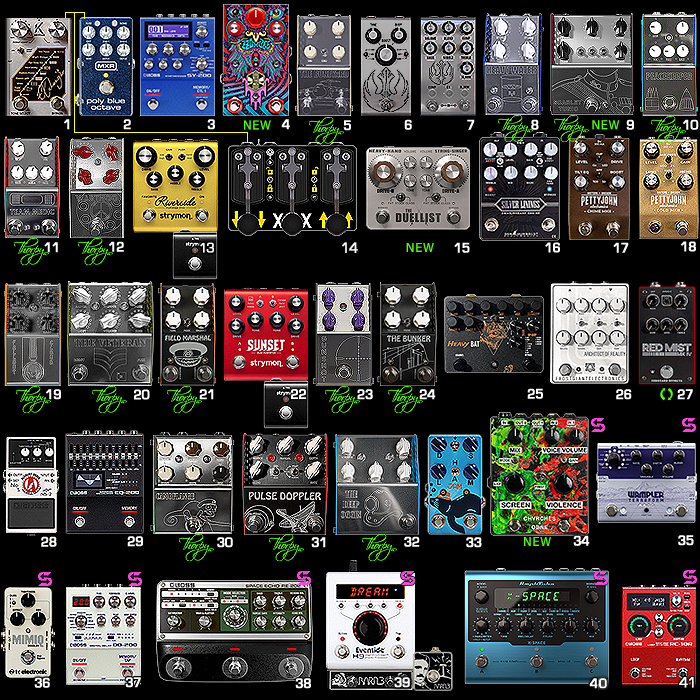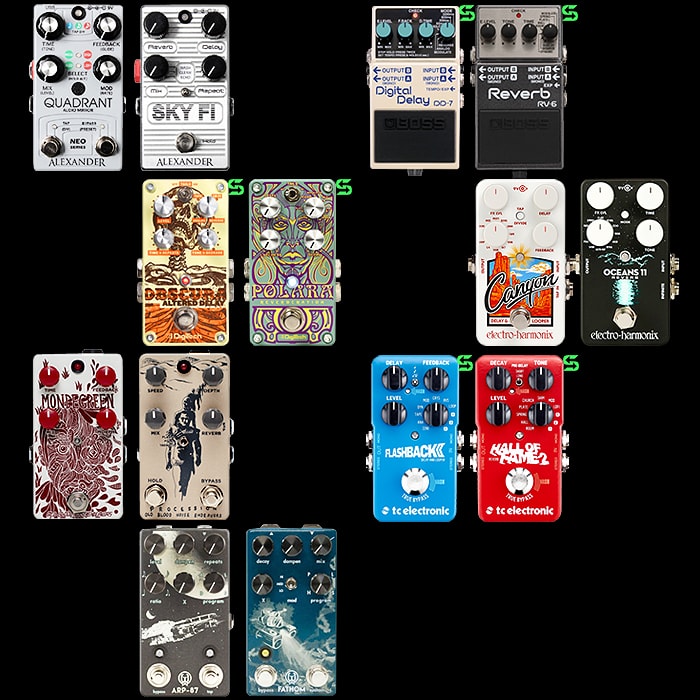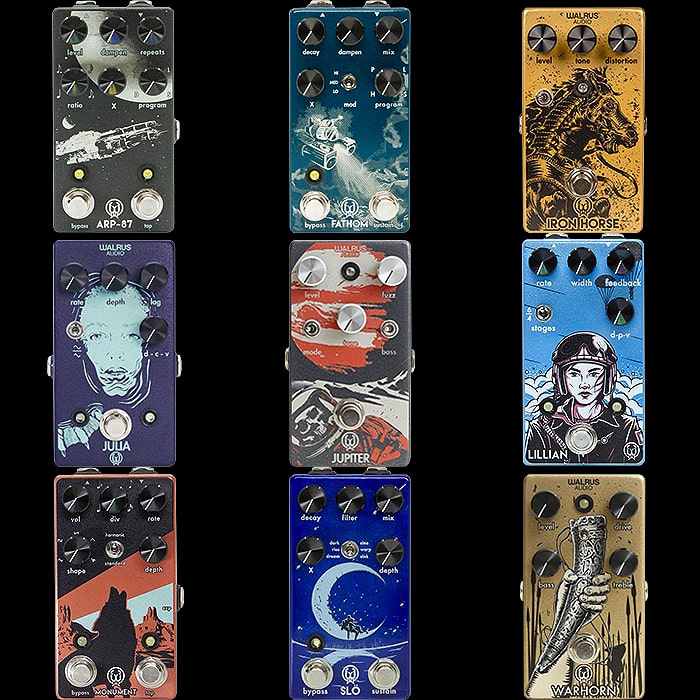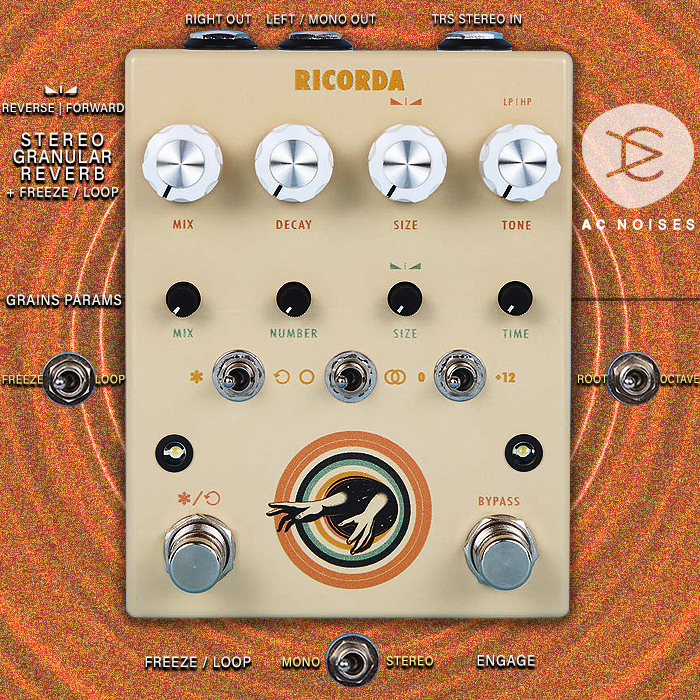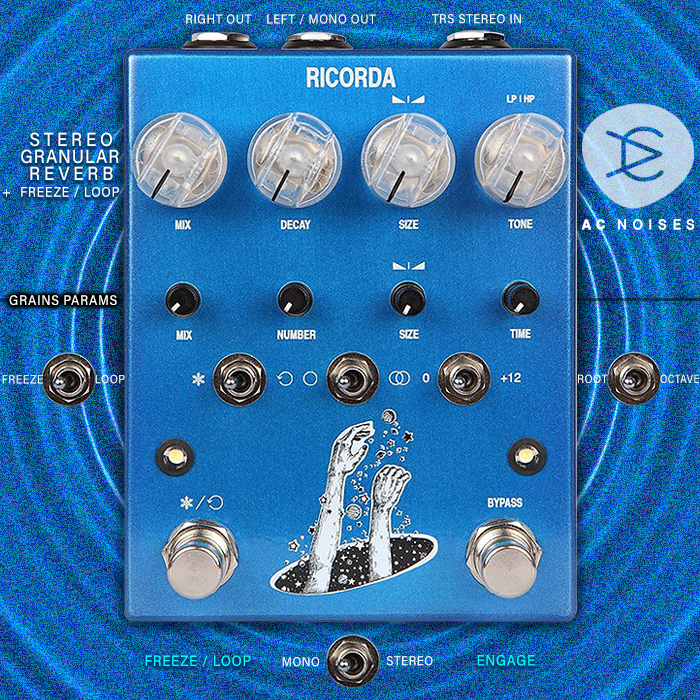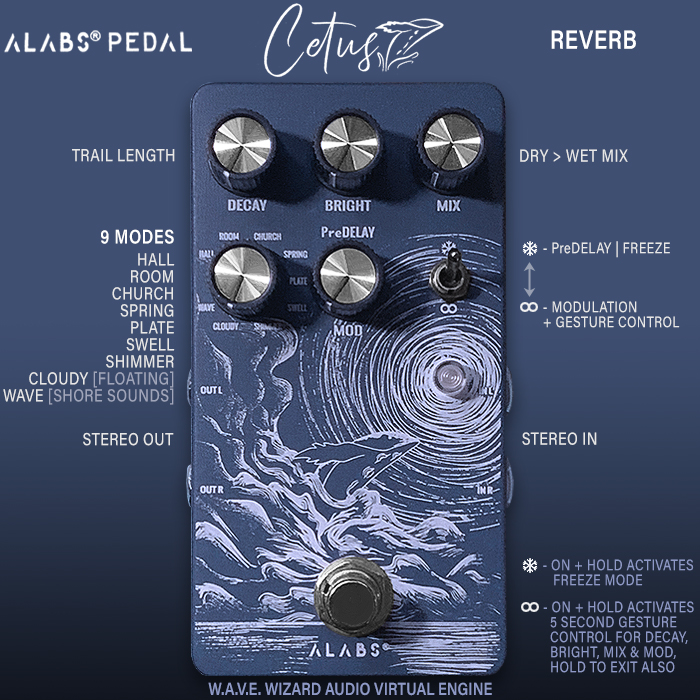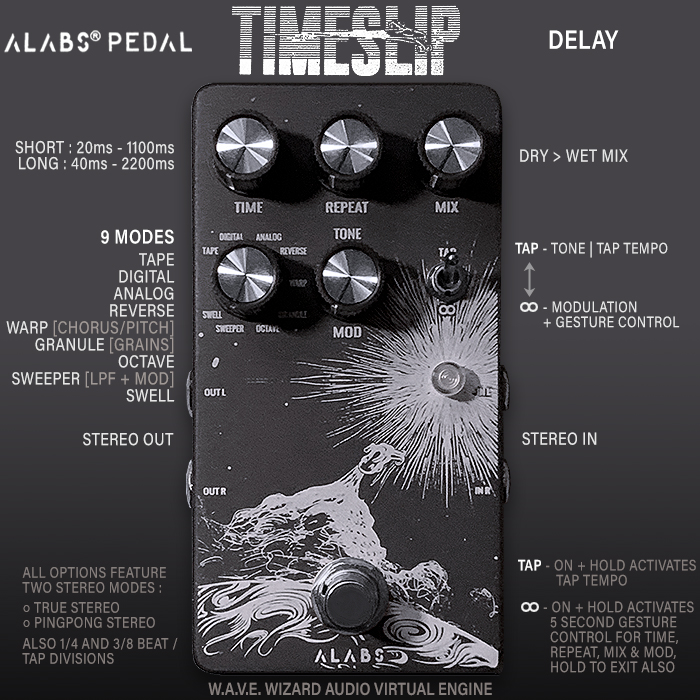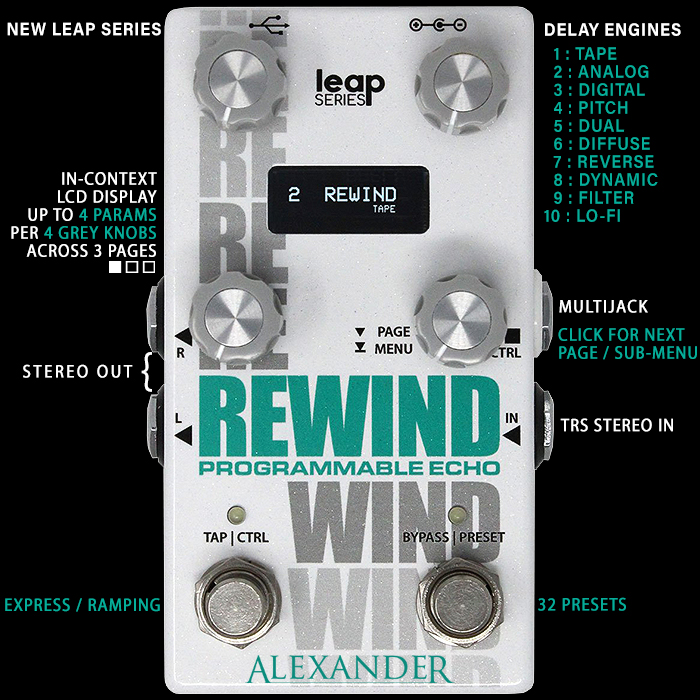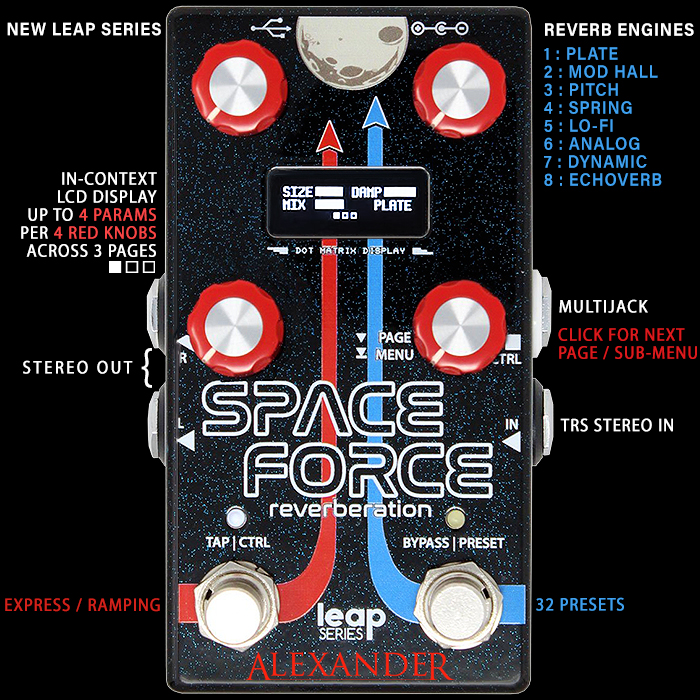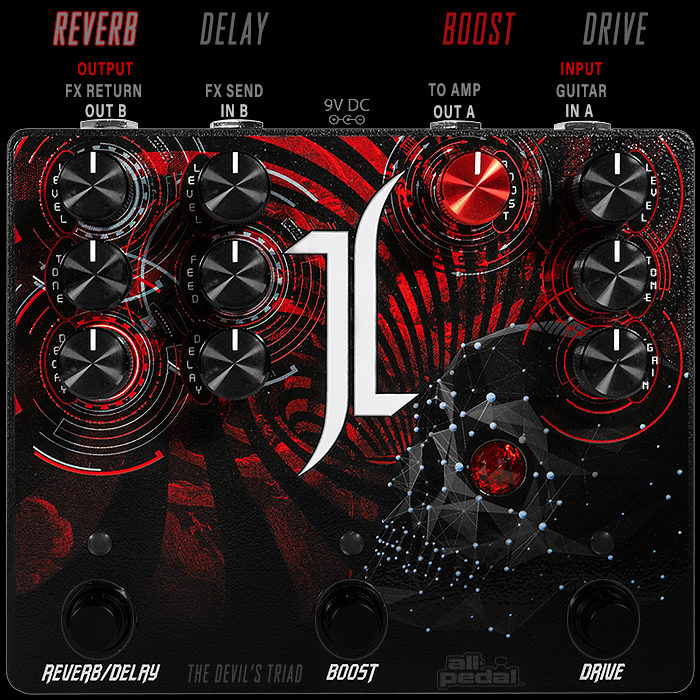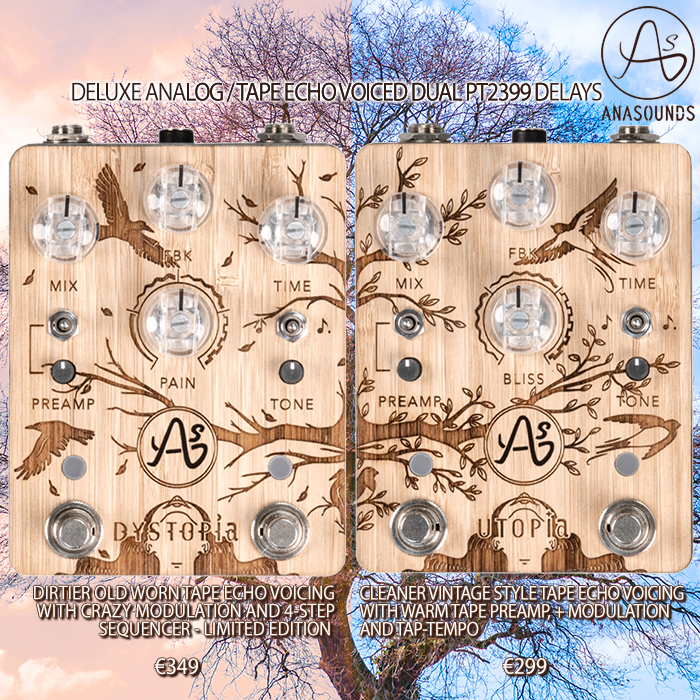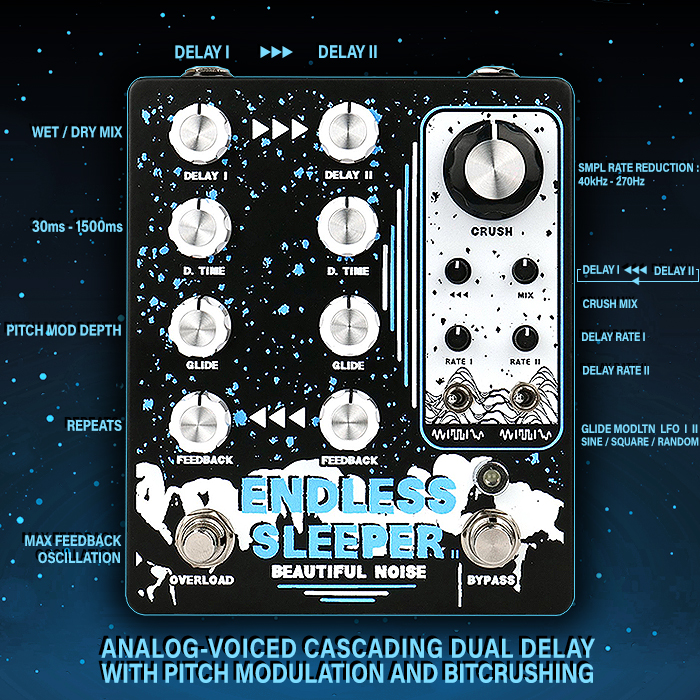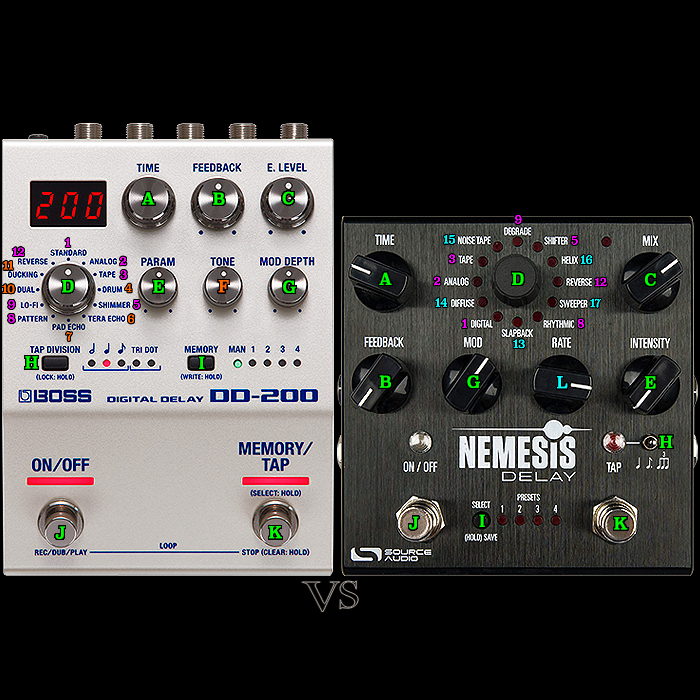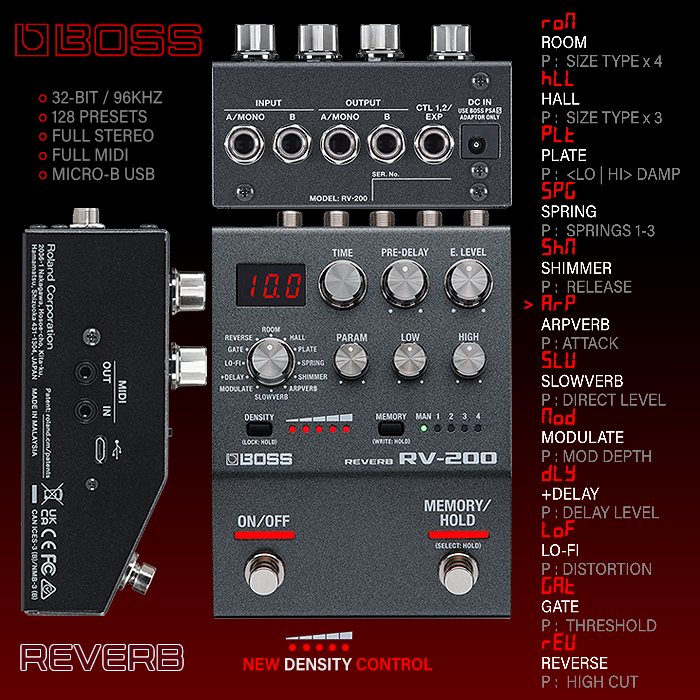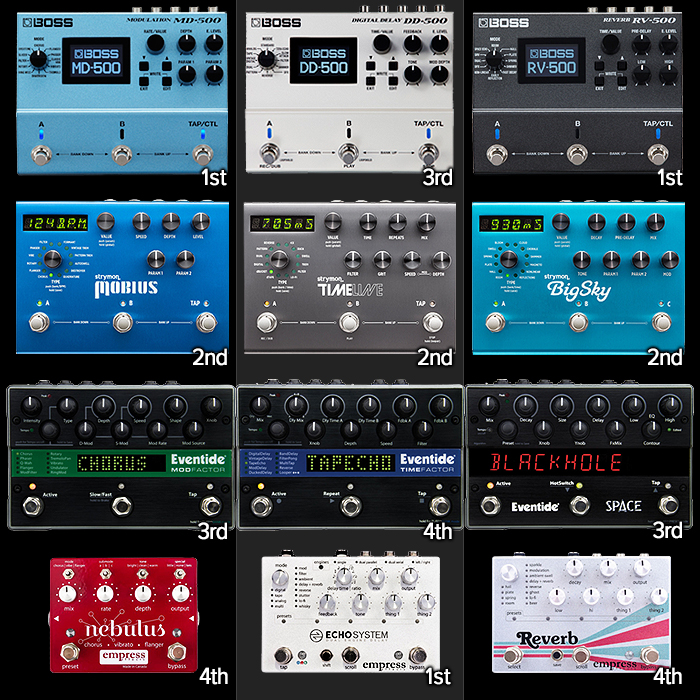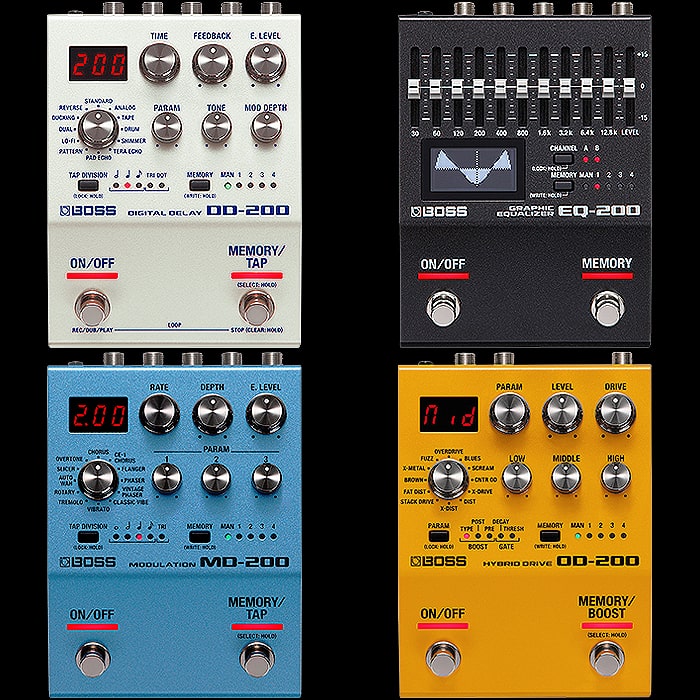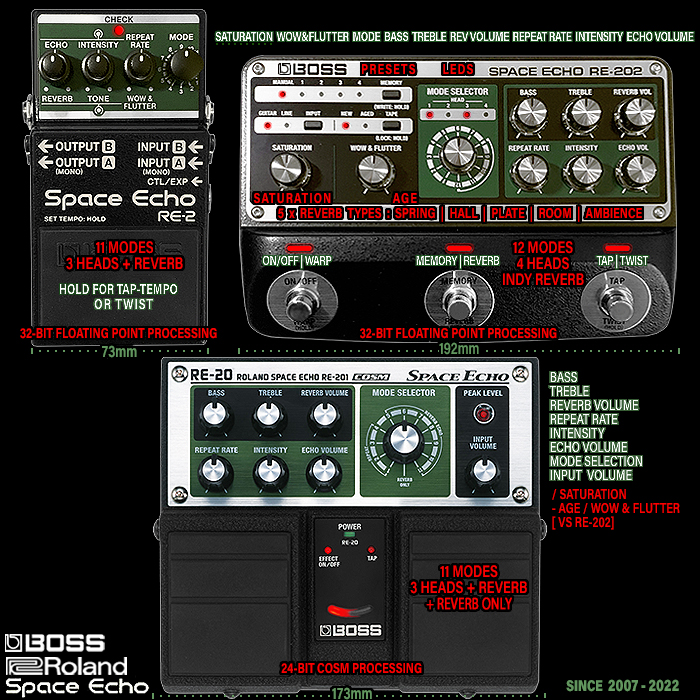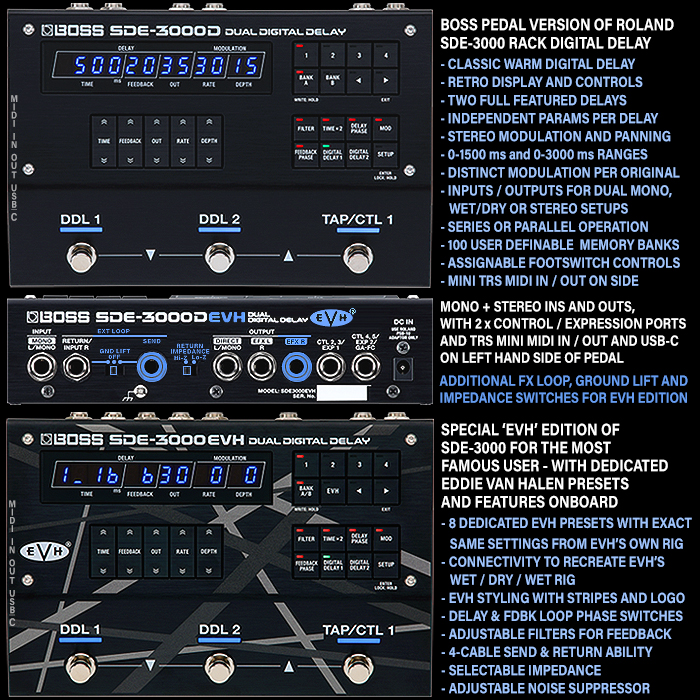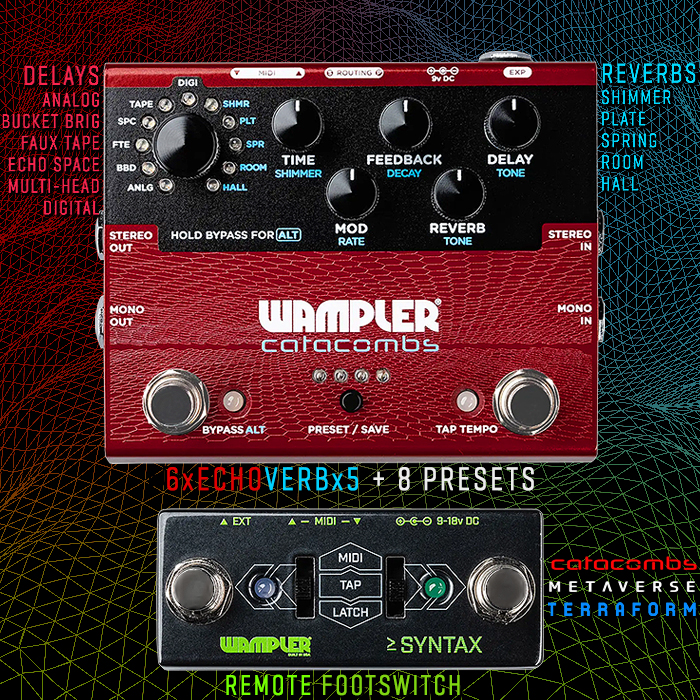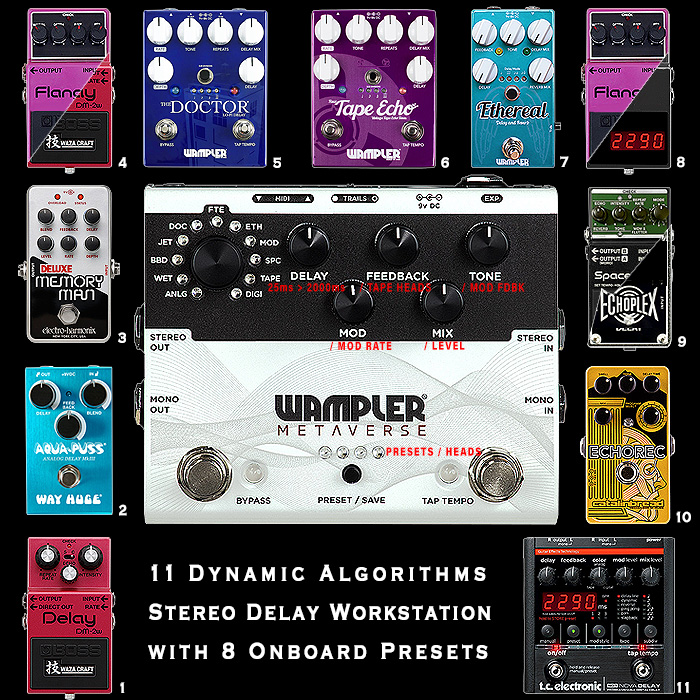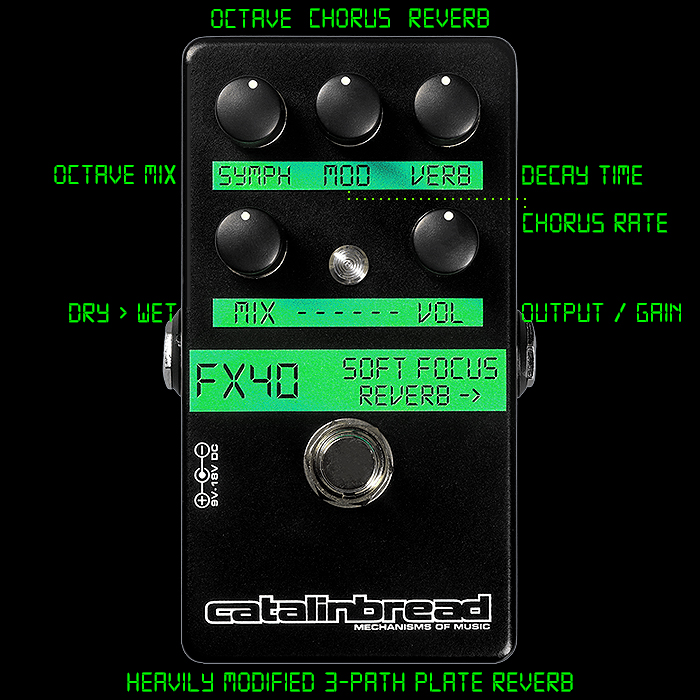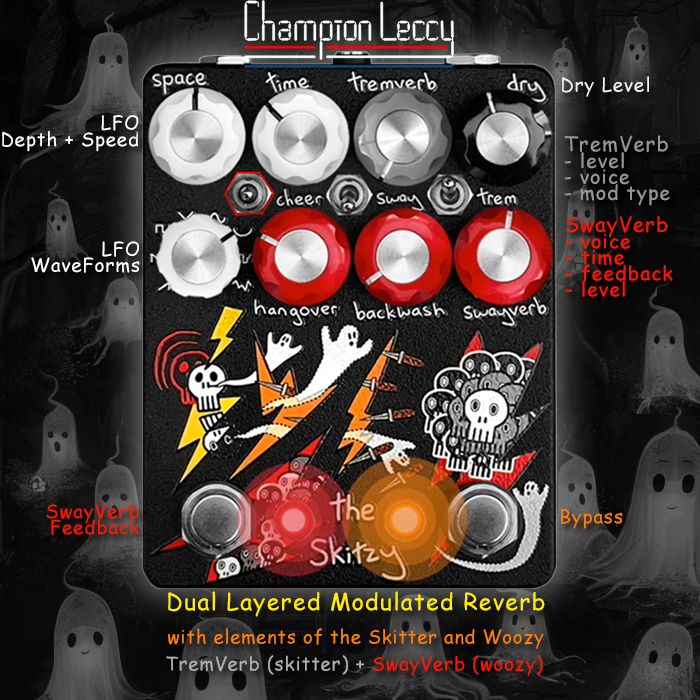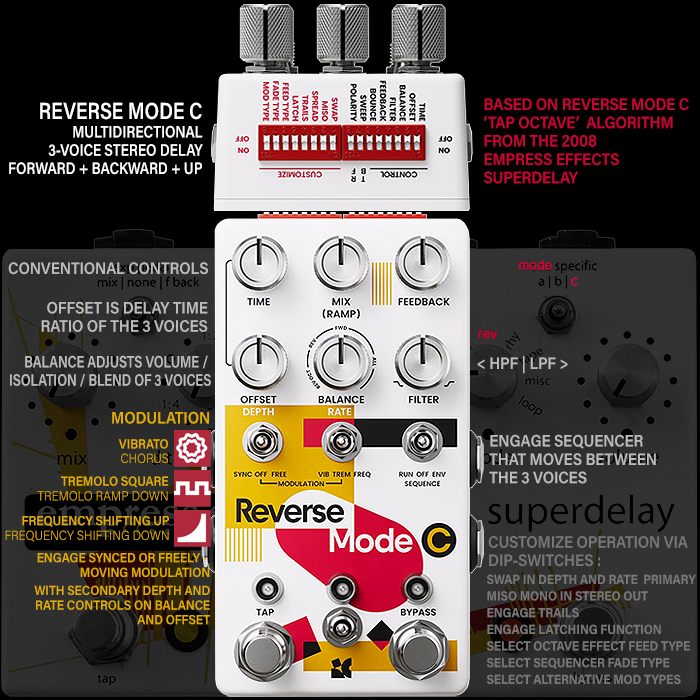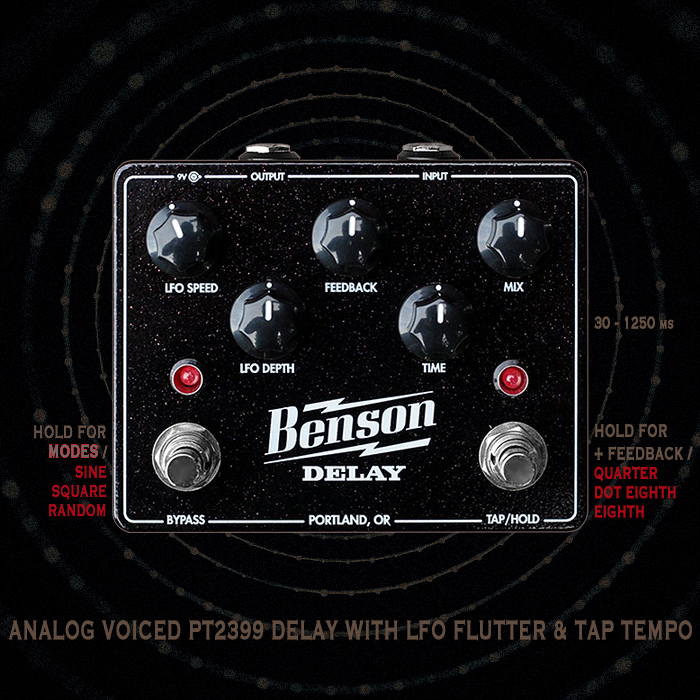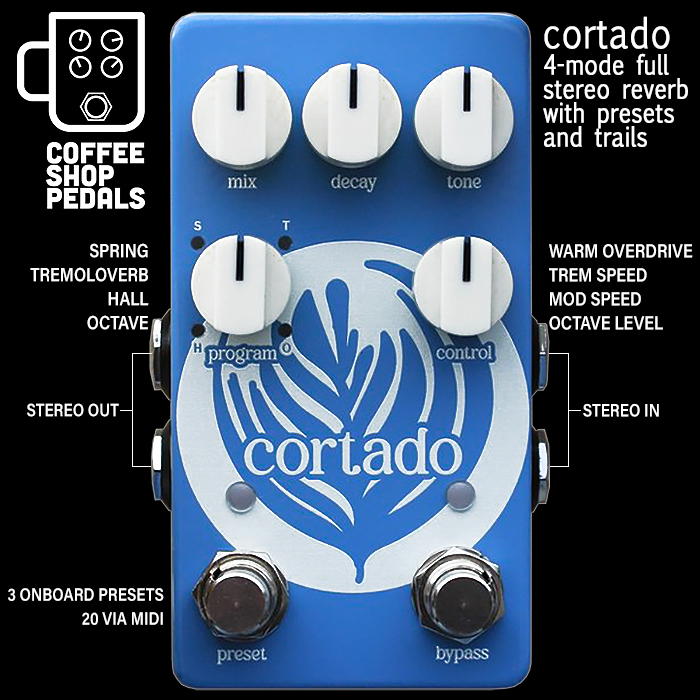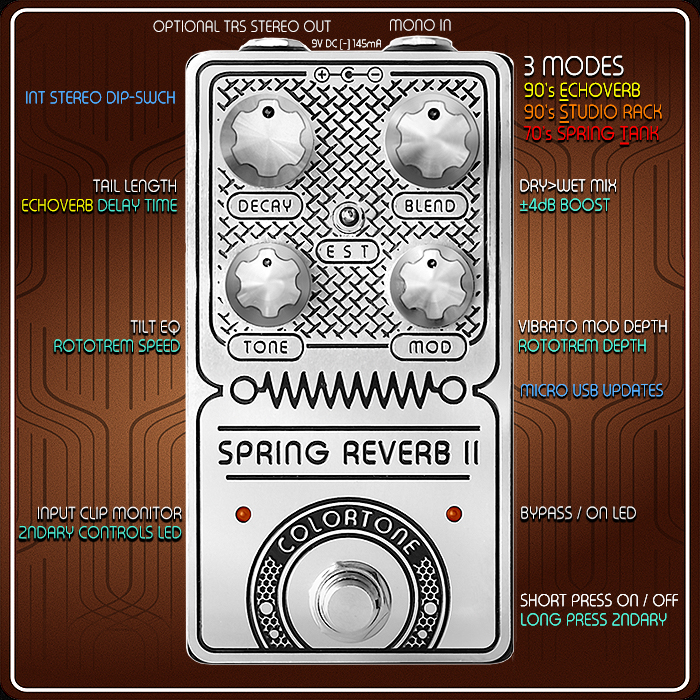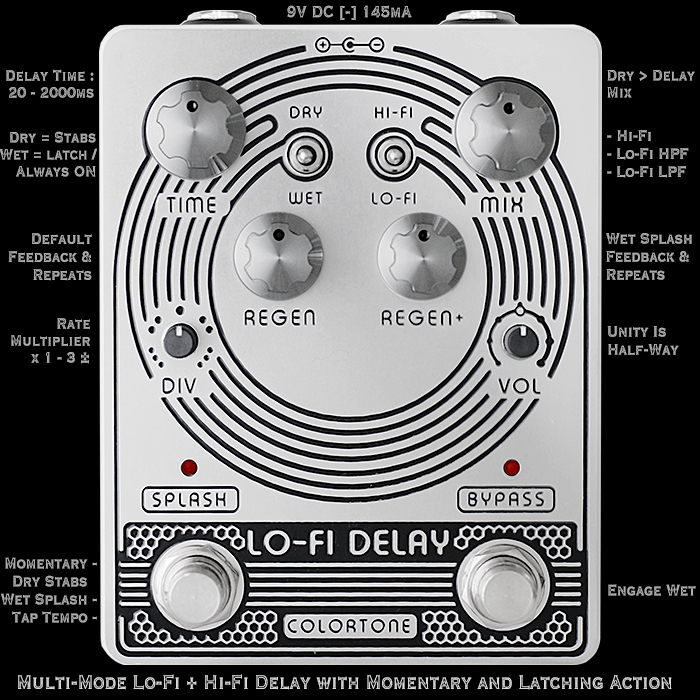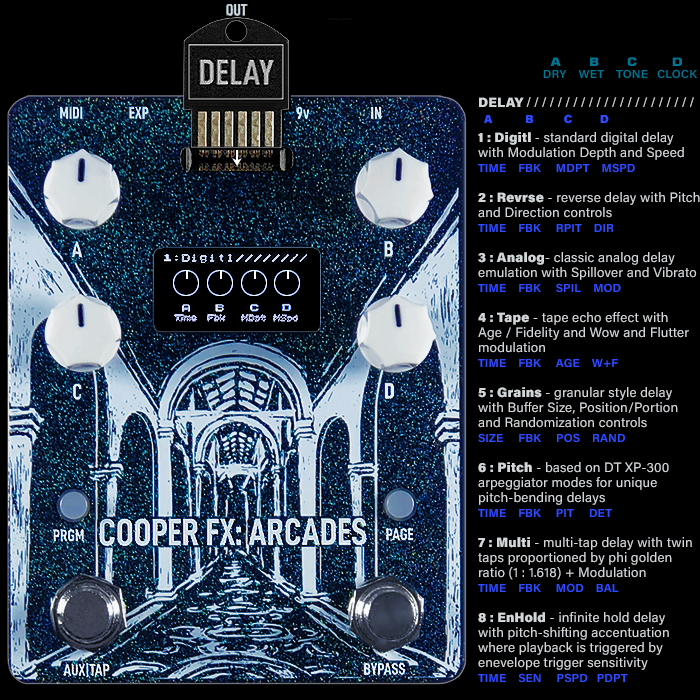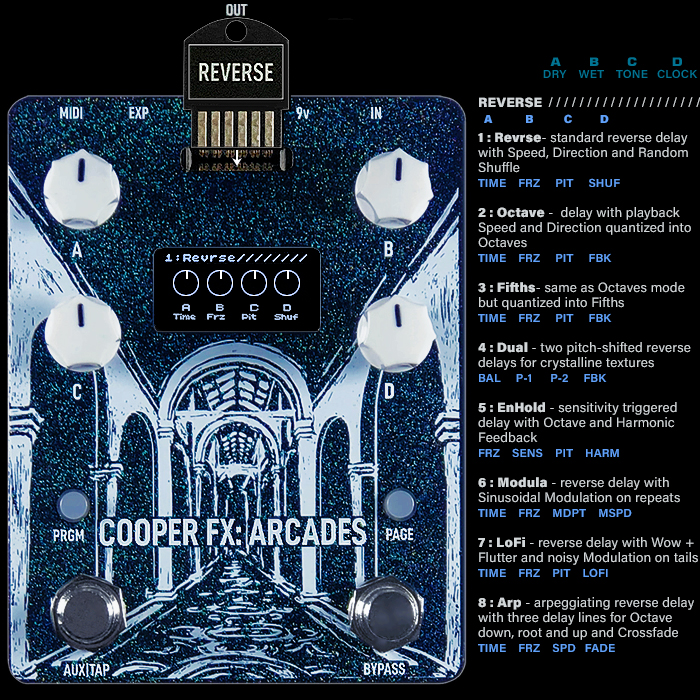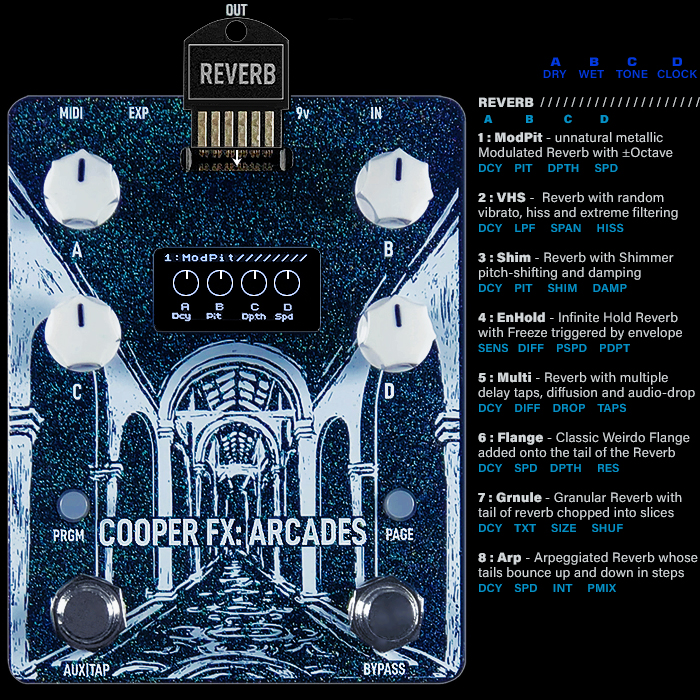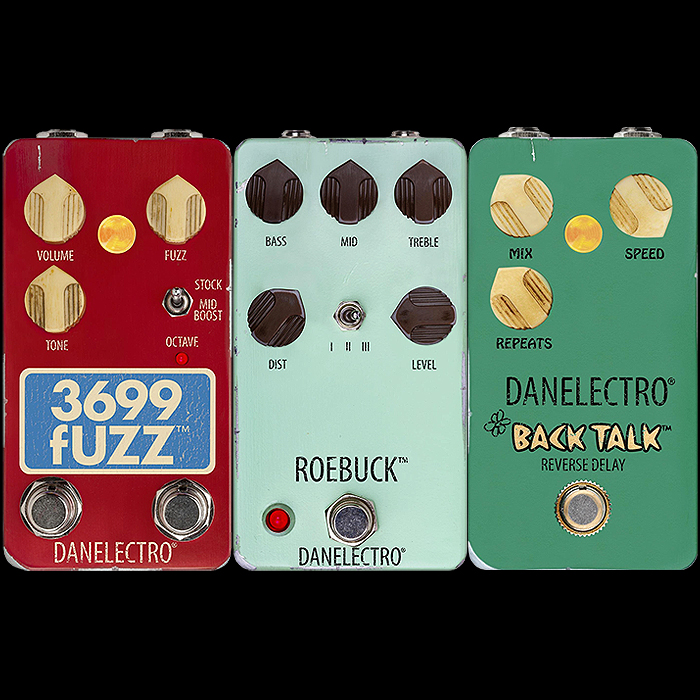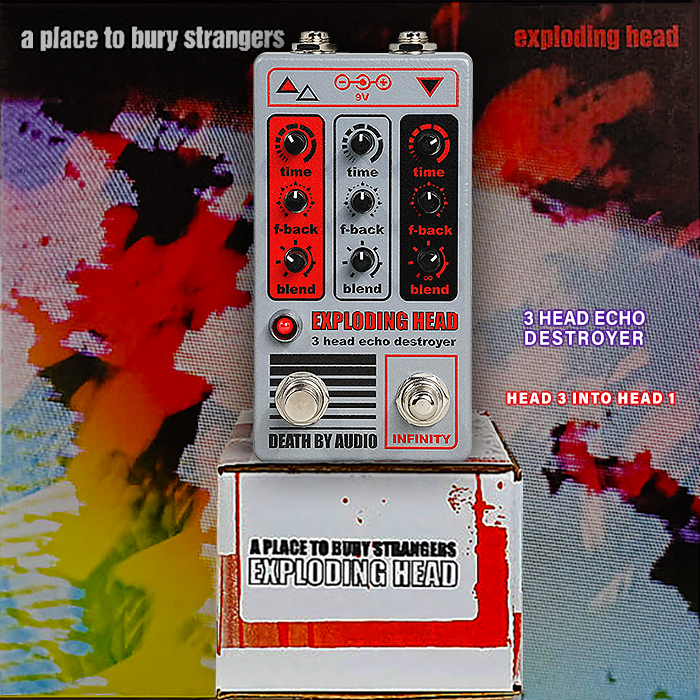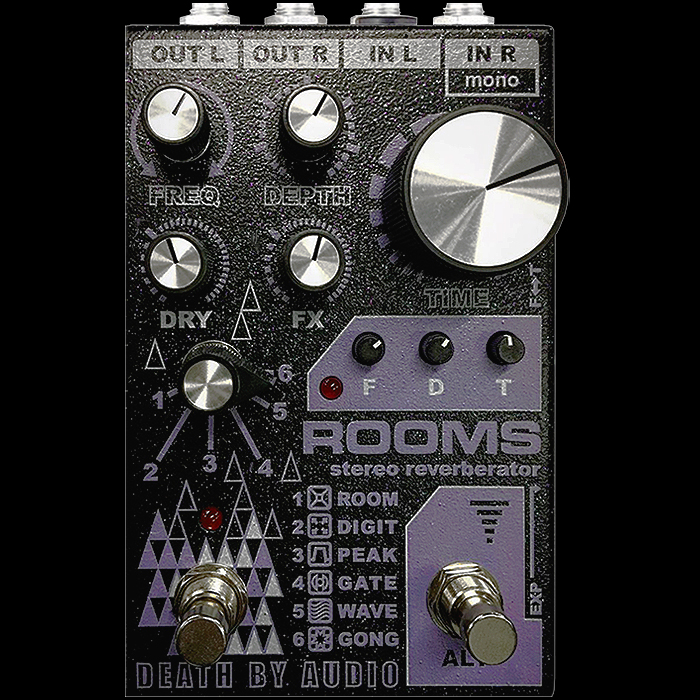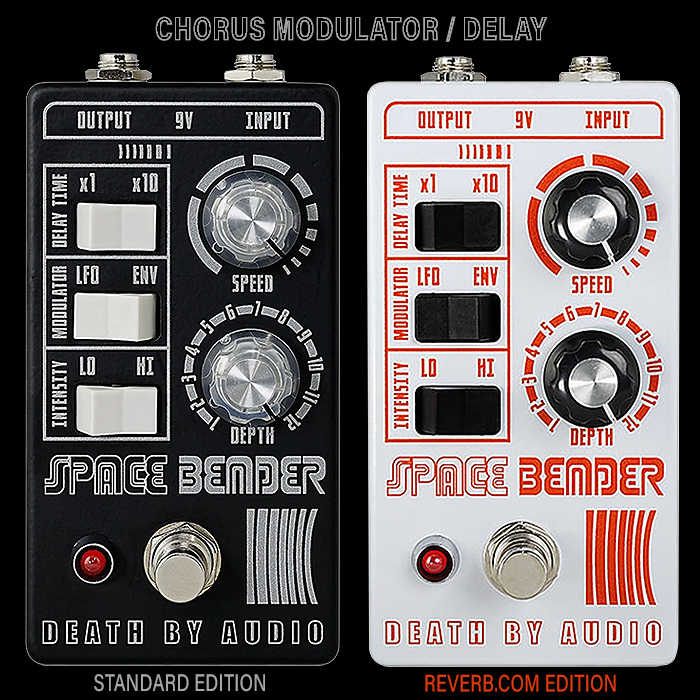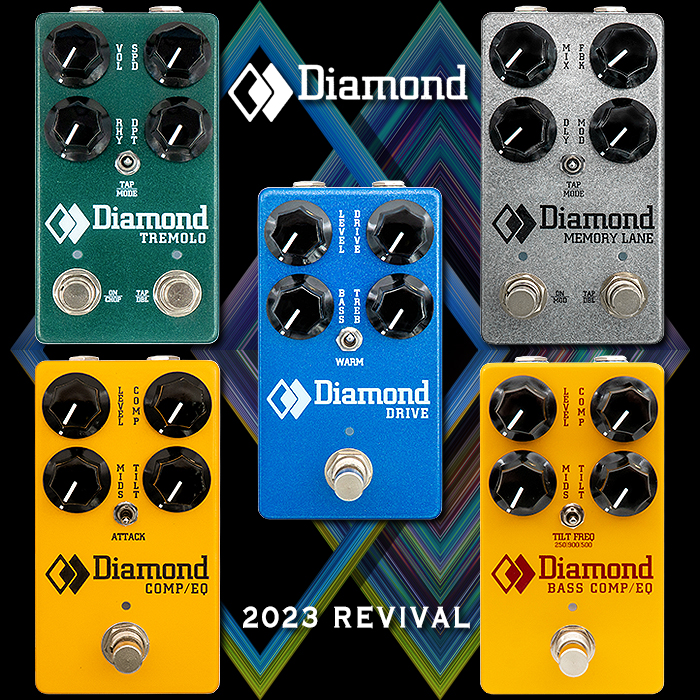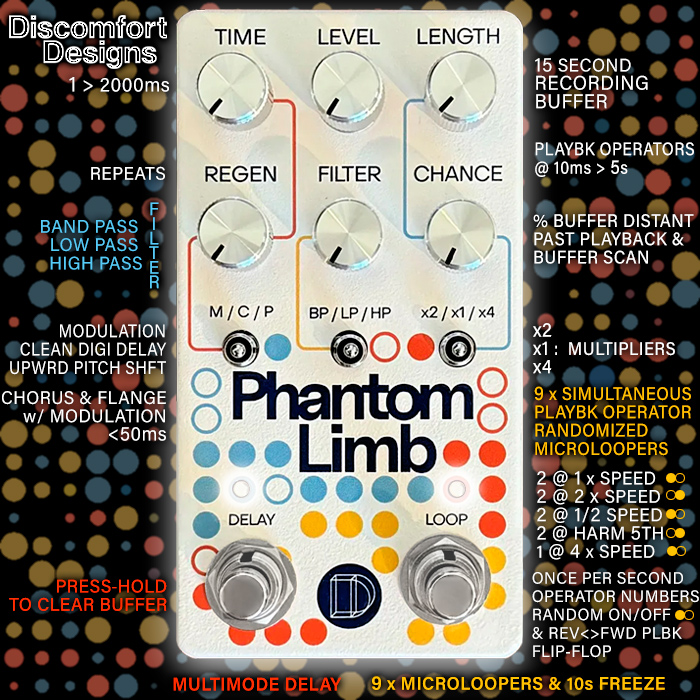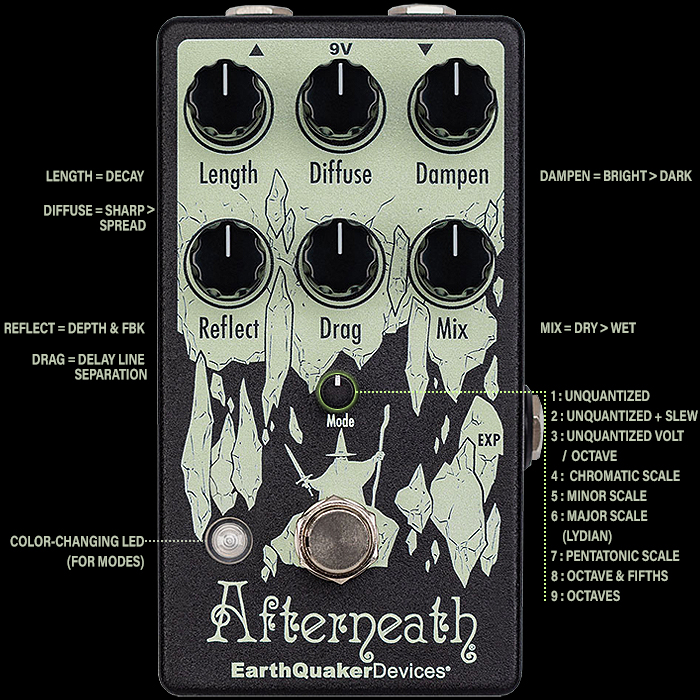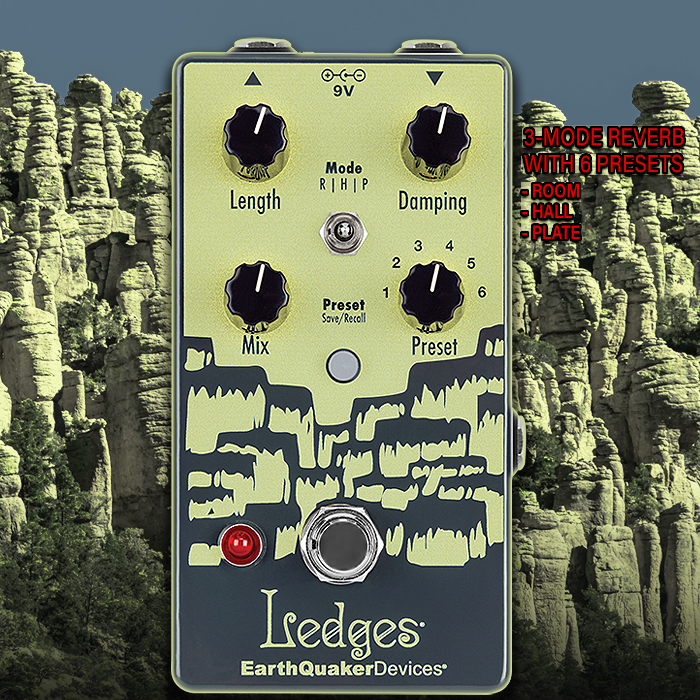Walrus Audio's Lore Reverse Soundscape Generator doubles down on Reverse Delay and Reverb, and adds Pitch Shifting into the mix
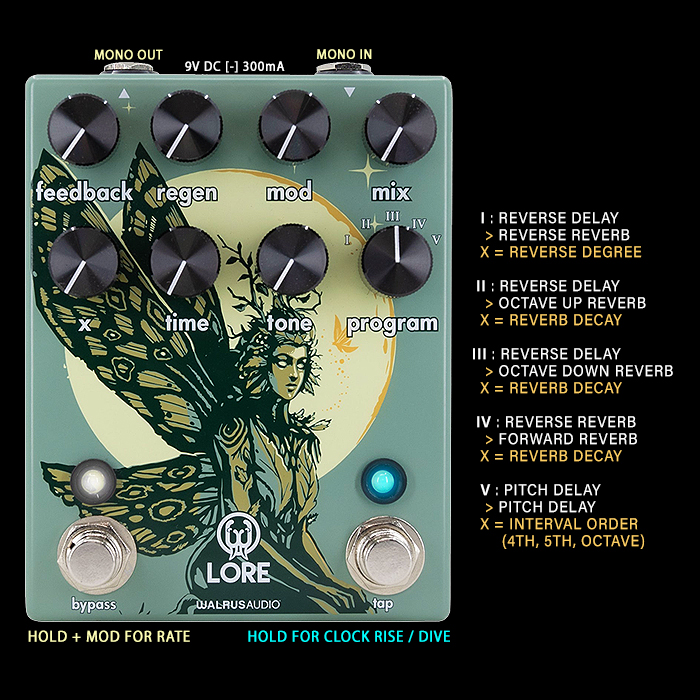
Upon first seeing the Lore - it kind of reminds me of the EQD Astral Destiny and seeks to do similar things with Reverse Delay and Reverse Reverb what the Destiny does for Shimmer Reverb. Both have an immediate down-side for me in that they’re only Mono signal path - where I feel that Delay and Reverb really need the spatial element of Stereo Output to be fully and properly realised. So I’m far less excited here than for instance for the recent OBNE + Chvrches Screen Violence - which included Delay and Reverb - but in Full True Stereo!
Controls - Feedback, Regen, Modulation Depth / Rate, Mix, X Variable per I-V Program, Time, Tone, Program / Mode : I / II / III / IV / V, Bypass / Hold for Mod Rate Footswitch, Tap Tempo / Hold for Clock Rise / Dive Footswitch.
Controls seem fairly straight-forward - where the only mystery really is the different function of the X variable which is mostly Reverb Decay, but also Reverse Degree, and Interval Order depending on Mode / Program selected - as indicated in the above visual.
Key Constituent Features :
Analog Feedback Paths
Having two analog feedback paths allows each program to incorporate a unique mix of affected and unaffected feedback. The two feedback paths interact and build off of each other organically, offering the user a wide array of sounds and behaviors to experiment with.
Programs:
I. Reverse Delay into Reverse Reverb
Program 1 combines Reverse Delay with Reverse Reverb with a focus on organically interacting feedback paths. Space and ambiance build as the signal is reversed, re-reversed, reverberated, and reversed again within the feedback network. Experiment with the X knob to control how reversed your delay trails are with left being least reversed and right being fully reversed. Lots of fun with big, eerie minor chords!
II. Reverse Delay into Octave Up Reverb
Program 2 is a ’Light Reverb’ that combines octave-up harmonic feedback with an expansive, airy, reverb tank to create a breathy, spacious ambiance. Use the Regen knob to introduce a playful shimmer into the reverb decay. Increase the X knob to control the decay of the reverb. It sounds especially great with delicate fingerpicking parts.
III. Reverse Delay into Octave Down Reverb
Program 3 is a ’Dark Reverb’ that combines Octave Down harmonic feedback with heavy filtering and harmonic distortion, to create a sound that is thick, rich, and murky. Use the Regen knob to bring a lower octave into the reverb decay. Increase the X knob to control the decay of the reverb. Add in some high gain or fuzz to alter the time-space continuum.
IV. Reverse Reverb into Forward Reverb
Program 4 is a Dual Reverb program, featuring reverse reverb into forward reverb, Dual harmonic feedback paths allow the user to dial in octave up and octave down, and time stretching allows for control of the size and character of the space. Perfect for instantly transforming guitar into rich ambient pads. Use the Feedback knob to add a lower octave to the reverse reverb. Conversely, use the Regen knob to add an octave up to the reverse reverb decay. Control the decay of the forward reverb with the X knob. To channel all things ambient, experiment with dynamic picking and strumming techniques with the mix fully wet for ethereal drones and pads.
V. Pitch Delay into Pitch Delay
Program 5 features two ’Dueling’ Pitch Delays, which shift the input signal up and down in complementary or opposing directions, allowing the user to create intricate harmonic patterns in the feedback network. Behaves like a sequencer at higher delay times and like a harmonizer at lower delay times. Use Feedback and Regen knobs to control various amounts of pitched delay repeats. Use the X knob to change the order of the 4th, 5th, and octave intervals that the pitch delay steps through. Experiment with short staccato notes to create some very interesting rhythmic parts!
Momentary Features
Dive / Rise - Holding down the tap tempo switch will momentarily shift the clock rate of the pedal down or up and will hold it at that rate for as long as the switch is pressed. The direction of the dive can be changed by simply pressing bypass and tap simultaneously. A green LED over tap will indicate rise is set and a blue LED will indicate that dive is set.
Modulation
The Mod knob will control the amount of modulation applied to the wet signal. Holding down bypass and adjusting the Mod knob will adjust the modulation rate. The bypass LED will blink to show your set mod rate.
I am personally a huge fan of Reverse Delay and Reverse Reverb - where I’m nicely covered currently by my Boss DD-200, Eventide H9 Max, and Amplitube X-Space workstations. It’s neat to have all those complementary effects together in the one device - but it would be even smarter with a screen - where you could mix and match those elements more freely. I can see how it would appeal to a lot of ambient and ’mood’ player - and for sure there are some cool shoegazer effects to be found here too. While the lack of Stereo Output really is a deal-breaker for me.
Also in this day and age this kind of pedal should really have presets! The Lore is priced pretty much the same as the Black Country Customs Difference Engine I recently reviewed - and yet that is far more clever with its screen, 100 Presets and Full Stereo Ins and Outs. There have been two excellent recent examples of progressive digital effects pedals - the Alexander Pedals Space Force, and the Difference Engine - this is surely how digital effects pedals should be made these days! There’s much I like about the Lore - and it’s a neat concept for sure, but it misses the mark for me in too many places to make it worth the while for me and my rig. I suppose purveyors of Mono tones will find more success here. $299 is not a bad price for all of this while I feel that there are considerably smarter pedals to be had for the same premium - including the recent Line 6 DL4 MKII.
What say all of you?
Demos
